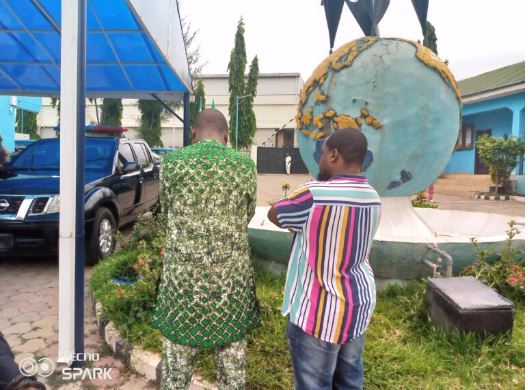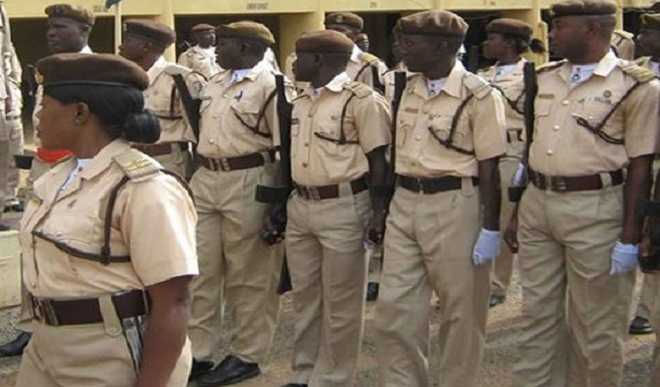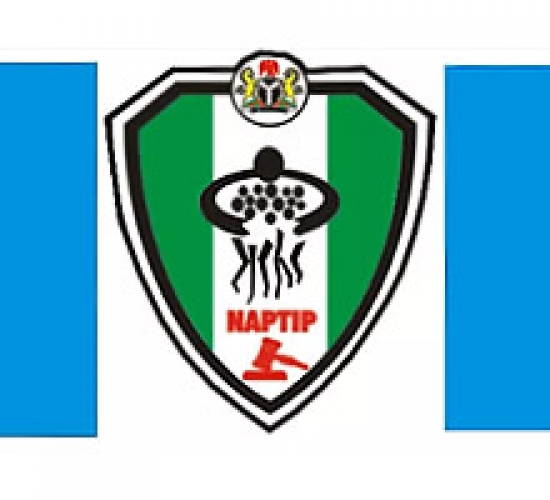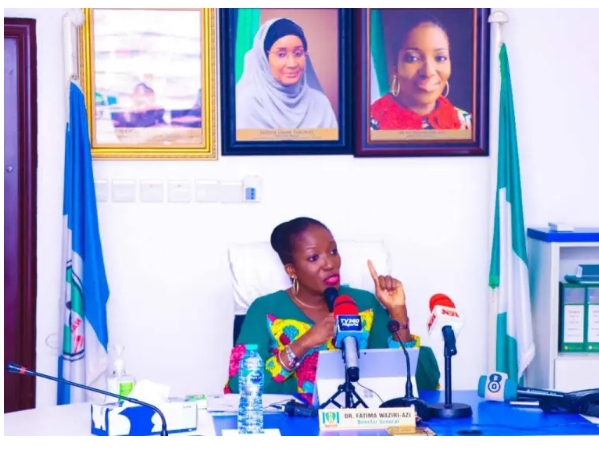The National Agency for the Prohibition of Trafficking in Persons (NAPTIP) on Thursday in Abuja presented two policy documents to further stem the tide of human trafficking in the country.
The presentation of the documents was part of the activities lined up for the celebration of the agency’s 20th anniversary.
The theme of the Anniversary is “A Shining Legacy: NAPTIP @ 20-Celebrating Partners and Honoring Excellence”.
The Agency commenced operations in 2003.
Speaking during the programme, the Director-General of the Agency, Prof. Fatima Waziri-Azi said the documents included “NAPTIP Disability Inclusion Policy” and “NAPTIP Service Charter”.
She said that the first policy document was transcribed into braille for the blind, adding that the National Commission for Persons with Disability facilitated the processes.
The NAPTIP boss disclosed that the agency had also been remodeled with its App called the Ireporter, and NAPTIP Learning Management System which was supported by the Canadian Government.
Waziri-Azi stated that NAPTIP had also came up with Audio-Visual Materials developed for use by the Blind and Deaf.
“To keep things current, for anyone who has noticed, we have rebranded our logo, which has already been mainstreamed.
“The rebranded logo represents a re-commitment from NAPTIP to protect all persons against human trafficking, and violence against persons through a people-centered access to justice, and the provision of safe spaces.
“Today is a very special day not just for NAPTIP and Nigeria but for everyone invested in ensuring human trafficking is controlled and victims are secured across the world.
“It has been 20 years of growth for NAPTIP in an ever-changing world. Our journey has been one of immense determination, resilience and hope.
“In the past 20 years, we have seen the crime of human trafficking evolve in terms of the enormity, trends and patterns.
However, in the face of such adversity, we have found strength in collaboration and our collective spirit and determination has brought us this far,” she said.
The D-G stated that the Agency had witnessed the incredible power of cooperation and the unwavering dedication of countless individuals who have come together to combat the injustice of human trafficking.
She, however, appreciated all partners who have been of tremendous support to the agency success story and all its staff.
Also speaking, the Permanent Secretary of the Federal Ministry of Humanitarian Affairs, Disaster Management and Social Development, Dr Nasir Sani-Gwarzo, congratulated NAPTIP for the achievements.
He disclosed that Nigeria had taken the lead in the league of nations to frontally confronting the criminal elements involved in the exploitation of vulnerable individuals within and across our borders.
Sani-Gwarzo said that with the support of stakeholders and development partners, the country image had changed from having the worst record of human trafficking, adding that traffickers now think twice before they strike.
“For us as a Ministry mandated by the Federal Government of Nigeria to supervise the agency, we are very proud of the achievements of the agency within these 20 years and we congratulate the management and personnel for the giant strides.
“NAPTIP, I must say at this point has become the pride of Nigeria which we are very proud to market to other countries. No wonder, many countries now visit Nigeria regularly to understudy the NAPTIP Model with a view to establishing same in their countries.
“Just recently, NAPTIP played host to delegation from The Republic of Niger, Cote d Ivoire and The Gambia who visited Nigeria to further strengthen the Bi- Lateral agreement and Memorandum of Understanding (MoU),” he said.
The highlight of the event was the presentation of awards to some Ambassadors and High Commissioners of countries who have offered support to NAPTIP.
Awards was also given to some foreign agencies, private and government institutions in Nigeria, as well as private individuals.








